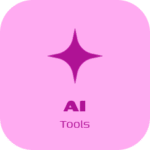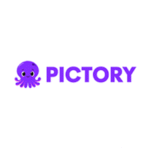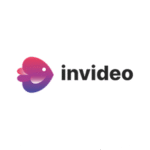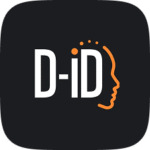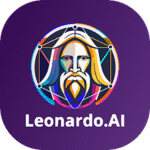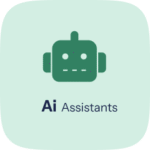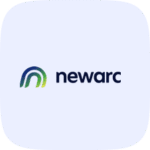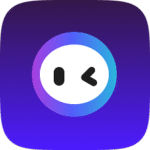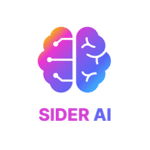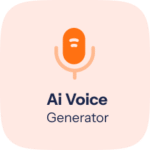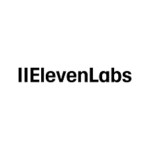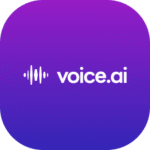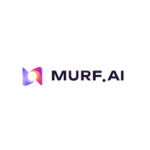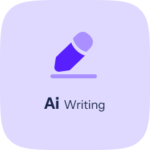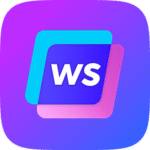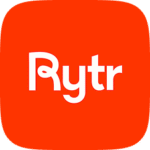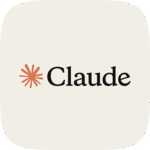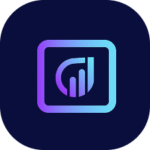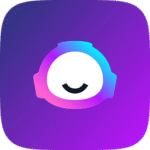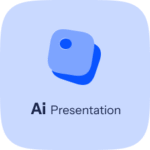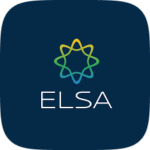AI in Marketing: 7 Powerful Tools to Boost Campaign Performance
Introduction: How AI Is Revolutionizing Digital Marketing
In today’s highly competitive digital space, integrating AI in marketing has shifted from being a luxury to a necessity. Artificial Intelligence enables brands to automate workflows, personalize customer experiences, and make smarter, data-driven decisions. With the support of machine learning, predictive analytics, and natural language processing, businesses can achieve greater targeting accuracy and efficiency across all touchpoints. From increasing conversion rates to minimizing ad spend wastage, AI tools are reshaping marketing strategies. In this guide, we’ll explore seven game-changing AI solutions that can significantly boost your campaign performance—and your ROI.
Why Is AI a Game-Changer for Modern Marketing?
Artificial Intelligence introduces accuracy, automation, and scalability to marketing operations. It empowers professionals to analyze vast datasets instantly, forecast trends, and make proactive decisions. From optimizing workflows to analyzing social sentiment, AI plays a central role across the funnel. According to Salesforce, more than 60% of marketing leaders are already leveraging AI to enhance efficiency—and that number is rising rapidly.
Did You Know? AI can accelerate marketing decision-making by up to 30% and slash operational costs by 25% (source: McKinsey).
Key Marketing Advantages with AI
- Personalizes campaigns using deep consumer analytics
- Predicts trends and customer behavior with accuracy
- Automates repetitive tasks to free up strategic focus
1. How ChatGPT is Transforming Content Creation
AI-powered writing assistants like ChatGPT are revolutionizing content marketing. These platforms swiftly craft blog posts, social media captions, ads, email campaigns, and more—tailored to your brand voice. With features like tone customization and contextual learning, they ensure both quality and consistency. For marketers looking to buy ChatGPT with crypto, these tools offer a scalable, cost-effective solution. From landing pages to chatbot replies, AI eliminates the content bottleneck.
Why It Works
- Streamlines content generation across formats and platforms
- Adapts tone for diverse audiences and campaign types
- Ideal for lean teams looking to scale quickly
2. Can Predictive Analytics Improve Your Targeting?
Absolutely. Platforms like Adobe Sensei and HubSpot AI empower marketers to anticipate customer needs, minimize churn, and zero in on high-converting leads. By analyzing user activity, purchase history, and engagement signals, these tools deliver crystal-clear targeting strategies. Brands using predictive analytics have seen conversion rates climb by 25% and email open rates increase by up to 15%.
Benefits at a Glance
- Delivers high-precision personalization that boosts ROI
- Supports effective lifecycle and retargeting campaigns
- Reduces wasted ad spend by refining audience segmentation
3. Are AI Tools the Secret to Smarter Email Marketing?
Solutions like Mailchimp AI and Seventh Sense analyze recipient behavior to determine the optimal send time, design, and message. With faster A/B testing cycles and real-time data interpretation, these tools take the guesswork out of email marketing. Marketers using AI-enhanced platforms report up to 20% higher open rates and double the audience engagement.
AI in Marketing by the Numbers
- 72% of marketers have improved campaign performance thanks to AI (source: Statista)
- AI tools save marketers 40% of the time spent on manual tasks (source: PwC)
- Campaigns using AI analytics see 41% higher ROI (source: Deloitte)
4. How Are AI-Generated Videos Transforming Visual Marketing?
Tools like Lumen5 and Synthesia simplify video production by turning articles into short videos with curated visuals and automated captions. These platforms analyze text using NLP and create optimized video content—perfect for social media. For SMBs with limited creative teams, AI visual generators provide a low-barrier, high-impact marketing solution.
Tool Comparison Table
| Tool | Main Features | Pricing | Key Benefits |
|---|---|---|---|
| ChatGPT | Text generation, translation, code suggestions | Starts at $20/month | Fast, scalable content with tone control |
| Lumen5 | Video creation from articles, auto-captioning | Freemium / Pro plans from $29 | Boosts engagement via visual storytelling |
| ActiveCampaign AI | Email send-time intelligence, list optimization | $9–$149/month | Increases conversions and retention |
5. What Can Personalization Engines Do for You?
Platforms like Optimizely and Dynamic Yield help tailor user experiences in real-time—think personalized product suggestions, headlines, and CTAs based on behavior. In retail, AI personalization has driven a 31% increase in average order value and improved repeat purchase rates considerably.
Debunking Common Misconceptions
| Myth | Reality |
|---|---|
| AI replaces human roles. | AI supports human creativity by handling tasks and crunching data. |
| Only enterprises can afford AI. | Affordable subscription models now serve small and growing businesses. |
| AI tools break the budget. | Shared-access platforms like Ploonad offer budget-friendly options. |
6. What Makes AI Chatbots Essential for Lead Generation?
AI-powered bots from providers like Drift and Tars engage website visitors in real-time, answer queries, and route traffic intelligently. Integrated with CRM systems, these bots deliver personalized interactions that run 24/7. Companies deploying chatbots see up to 50% more qualified leads and improved customer response times.
7. How Are AI Tools Optimizing Paid Advertising?
Platforms like Albert and Adext AI analyze performance trends and dynamically adjust bids, copy, and audience targeting. These tools go beyond A/B testing by continuously optimizing based on live user behavior. Marketers using such platforms have reported up to a 30% reduction in CPC and significantly higher ROAS.
Common Pitfalls to Avoid with AI Marketing
- Skipping strategy – Set clear KPIs before you implement any tool
- Relying on messy data – Data quality directly impacts AI performance
- Over-automation – Don’t eliminate the human touch entirely
- Ignoring compliance – Align AI usage with privacy laws and regulations
Case Study: E-commerce Success with AI Integration
A fashion e-commerce brand implemented personalization with Dynamic Yield and predictive targeting via Adobe Sensei. In 60 days, they reduced cart abandonment by 18% and increased conversion rates by 26%. Better segmentation also cut retargeting ad waste by 15% and improved lifetime customer value.
What’s Next in AI Marketing? Trends to Watch
Expect major shifts as AI blends with voice search, generative content creation, and cross-device personalization. “Explainable AI” will become more prevalent, helping marketers understand how predictions are made. AR combined with AI will unlock new customer engagement models, particularly in retail and education industries.
Pro Tips to Maximize AI ROI
- Start small—pilot one tool, refine based on performance
- Benchmark results before and after AI integration
- Feed insights back into systems to improve accuracy
- Keep refining your audience segments regularly
Real Results from Marketers Using AI
Mark, SaaS Marketing Lead: “Email timing optimization boosted our nurture engagement by 2.5x.”
Elena, Ecommerce Store Owner: “AI recommendations increased our average order size by 22%.”
Hassan, Agency Director: “Using shared AI tools via Ploonad let us experiment affordably and scale fast.”
Quick Start Guide to AI Marketing Integration
- Map key performance gaps in your current marketing funnel
- Shortlist 2–3 AI tools tailored to your goals
- Set tangible KPIs (e.g., +12% CTR, 20% lead growth)
- Connect AI tools to your CRM, analytics, or email platforms
- Roll out features incrementally to track impact
- Monitor and iterate each month based on fresh data
Recommended Learning & Tools
- Data-Driven Marketing by Mark Jeffery
- HubSpot AI Marketing Hub
- Copy.ai – Automated Copywriting
- Synthesia.io – AI Video Production
FAQ: AI in Marketing Explained
1. What is AI in marketing?
It refers to using Artificial Intelligence—including machine learning and NLP—to enhance, automate, and personalize marketing efforts more efficiently.
2. Can AI replace marketers?
Not exactly. AI handles the repetitive and data-heavy tasks, while humans still lead strategy and creative vision.
3. What are some popular AI marketing tools?
Popular choices include ChatGPT for writing, Dynamic Yield for personalization, Mailchimp AI for emails, and Adext AI for advertising.
Conclusion: Take the Leap Towards Smarter Marketing
Artificial Intelligence is no longer the future—it’s the present of digital marketing. From content creation to audience targeting and campaign optimization, AI tools offer real, measurable value. As you explore the tools covered in this guide, remember: success with AI begins with experimentation, insights, and adaptation. Ready to enhance your next campaign? Start small, stay focused, and scale smart—with AI in your corner, there’s no limit to what you can achieve.


